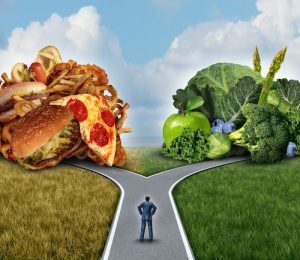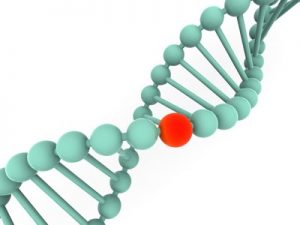Which Diet Should You Choose?
![]() Many of you started 2021 with goals of losing weight and/or improving your health. In many cases, that involved choosing a new diet. That was only 2 months ago, but it probably feels like an eternity.
Many of you started 2021 with goals of losing weight and/or improving your health. In many cases, that involved choosing a new diet. That was only 2 months ago, but it probably feels like an eternity.
For many of you the “bloom” has gone off the new diet you started so enthusiastically in January.
- Perhaps the diet isn’t working as well as advertised…
- Perhaps the diet is too restrictive. You are finding it hard to stick with…
- Perhaps you are always hungry or constantly fighting food cravings…
- Perhaps you are starting to wonder whether there is a better diet than the one you chose in January…
- Perhaps you are wondering whether the diet you chose is the wrong one for you…
If you are rethinking your diet, you might want to know which diets the experts recommend. Unfortunately, that’s not as easy as it sounds. The diet world has become just as divided as the political world.
Fortunately, you have an impartial resource. Each year US News & World Report invites a panel of experts with different points of view to evaluate popular diets. They then combine the input from all the experts into rankings of the diets in various categories.
If you are still searching for your ideal diet, I will summarize the US News & World Report’s “Best Diets In 2021”. For the full report, click on this link.
How Was This Report Created?
 US News & World Report recruited panel of 25 nationally recognized experts in diet, nutrition, obesity, food psychology, diabetes, and heart disease to review the 39 most popular diets. They rated each diet in seven categories:
US News & World Report recruited panel of 25 nationally recognized experts in diet, nutrition, obesity, food psychology, diabetes, and heart disease to review the 39 most popular diets. They rated each diet in seven categories:
- How easy it is to follow.
- Its ability to produce short-term weight loss.
- Its ability to produce long-term weight loss.
- its nutritional completeness.
- Its safety.
- Its potential for preventing and managing diabetes.
- Its potential for preventing and managing heart disease.
They converted the experts’ ratings to scores 5 (highest) to 1 (lowest). They then used these scores to construct nine sets of Best Diets rankings:
- Best Diets Overall combines panelists’ ratings in all seven categories. However, all categories were not equally weighted. Short-term and long-term weight loss were combined, with long-term ratings getting twice the weight. Why? A diet’s true test is whether it can be sustained for years. And safety was double counted because no diet should be dangerous.
- Best Commercial Diets uses the same approach to rank 15 structured diet programs that require a participation fee or promote the use of branded food or nutritional products.
- Best Weight-Loss Diets was generated by combining short-term and long-term weight-loss ratings, weighting both equally. Some dieters want to drop pounds fast, while others, looking years ahead, are aiming for slow and steady. Equal weighting accepts both goals as worthy.
- Best Diabetes Diets is based on averaged diabetes ratings.
- Best Heart-Healthy Diets uses averaged heart-health ratings.
- Best Diets for Healthy Eating combines nutritional completeness and safety ratings, giving twice the weight to safety. A healthy diet should provide sufficient calories and not fall seriously short on important nutrients or entire food groups.
- Easiest Diets to Follow represents panelists’ averaged judgments about each diet’s taste appeal, ease of initial adjustment, ability to keep dieters from feeling hungry and imposition of special requirements.
- Best Plant-Based Diets uses the same approach as Best Diets Overall to rank 12 plans that emphasize minimally processed foods from plants.
- Best Fast Weight-Loss Diets is based on short-term weight-loss ratings.
Which Diets Are Best In 2021?

Are you ready? If this were an awards program I would be saying “Envelop please” and would open the envelop slowly to build suspense.
However, I am not going to do that. Here are the top 5 and bottom 5 diets in each category (If you would like to see where your favorite diet ranked, click on this link). [Note: I excluded commercial diets from this review.]
Best Diets Overall
The Top 5:
#1: Mediterranean Diet
#2: DASH Diet (This diet was designed to keep blood pressure under control, but you can also think of it as an Americanized version of the Mediterranean diet.)
#3: Flexitarian Diet (A flexible semi-vegetarian diet).
#4: Mayo Clinic Diet
#5: MIND Diet (This diet is a combination of Mediterranean and DASH but is specifically designed to reduce cognitive decline as we age.)
The Bottom 5:
#35: Modified Keto Diet
#36: Whole 30 Diet
#37: GAPS Diet (A diet designed to improve gut health).
#38: Keto Diet
#39: Dukan Diet
The Top 5:
#1: Flexitarian Diet
#2: Vegan Diet
#3: Volumetrics Diet (A diet based on the caloric density of foods).
#4: Mayo Clinic Diet
#5: Ornish Diet
The Bottom 5:
#35: Fertility Diet
#36: Whole 30 Diet
#37: Alkaline Diet
#38: AIP Diet (A diet designed for people with autoimmune diseases)
#39: GAPS Diet
Best Diabetes Diets
The Top 5:
#1: Flexitarian Diet
#2: Mediterranean Diet
#3: DASH Diet
#4: Mayo Clinic Diet
#5: Vegan Diet
The Bottom 5:
#35: The Fast Diet
#36: AIP Diet
#37: GAPS Diet
#38: Whole 30 Diet (A diet designed for people with autoimmune diseases)
#39: Dukan Diet
The Top 5:
#1: DASH Diet
#2: Mediterranean Diet
#3: Ornish Diet (A diet based on the caloric density of foods).
#4: Flexitarian Diet
#5: Vegan Diet
The Bottom 5:
#35: Keto Diet
#36: AIP Diet
#37: Whole 30 Diet
#38: Modified Keto Diet
#39: GAPS Diet
Best Diets for Healthy Eating
The Top 5:
#1: DASH Diet
#2: Mediterranean Diet
#3: Flexitarian Diet
#4: TLC Diet (A diet designed to promote heart health)
#5: MIND Diet
The Bottom 5:
#35: Atkins Diet
#36: Raw Food Diet
#37: Modified Keto Diet
#38: Dukan Diet
#39: Keto Diet
The Top 5:
#1: Mediterranean Diet
#2: Flexitarian Diet
#3: MIND Diet
#4: DASH Diet
#5: Fertility Diet
The Bottom 5:
#35: Keto Diet and Modified Keto Diet (tie)
#36: Whole 30 Diet
#37: Dukan Diet
#38: GAPS Diet
#39: Raw Foods Diet
Best Fast Weight-Loss Diets
The Top 5 (Excluding Commercial Diets):
#1: Atkins Diet
#2: Biggest Loser Diet
#3: Keto Diet
#4: Raw Food Diet
#5: Volumetrics Diet
Which Diets Are Best For Rapid Weight Loss?
 Let me start with some general principles:
Let me start with some general principles:
#1: If you are looking for rapid weight loss, any whole food restrictive diet will do.
- The Atkins and keto diets are meat heavy, low carb diets. They restrict fruits, some vegetables, grains, and most legumes.
- The Biggest Loser diet relies on restrictive meal plan and exercise programs.
- The restrictions of the raw food diet are obvious.
- The volumetrics diet restricts foods with high caloric density.
- The vegan diet, which ranks #7 on this list, is a very low fat diet that eliminates meat, dairy, eggs, and animal fats.
- I did not include commercial diets that rated high on this list, but they are all restrictive in one way or another.
#2: Restrictive diets ultimately fail.
- The truth is 90-95% of people who lose weight quickly on a restrictive diet regain most of that weight in the next two years. The pounds come back and often bring their friends along as well. Many people regain more weight than they lost. This is the famous “Yo-Yo Effect”.
- If dieters paid for one of the commercial diets, they may as well have burned their money.
- When I talk with people about weight loss, many of them tell me the Atkins diet is the only one they can lose weight on. That would be impressive if they were at a healthy weight, but most are not. They are overweight. I am starting to see the same thing from overweight people who have used the keto diet to lose weight and have regained their weight.
#3: We should ask what happens when we get tired of restrictive diets and add back some of your favorite foods.
- If you lose weight on a vegan diet and add back some of your favorite foods, you might end up with a semi-vegetarian diet. This is a healthy diet that can help you maintain your weight loss.
- If you lose weight on the Atkins or keto diets and add back some of your favorite foods, you end up with the typical American diet – one that is high in both fat and carbs. This is not a recipe for long-term success.
- Long term weight loss is possible if you transition to a healthy diet after you have lost the weight. In a recent article in “Health Tips From The Professor” I wrote about an organization called the National Weight Control Registry. These are people who have been successful at keeping the weight off. For purposes of this discussion, two points are important.
- They lost weight on every possible diet.
- They kept the weight off by following a healthy reduced calorie, low fat diet. (For what else they did, click here).
Which Diet Should You Choose?
 With rapid weight loss out of the way, let’s get back to the question, “Which Diet Should You Choose?” My recommendations are:
With rapid weight loss out of the way, let’s get back to the question, “Which Diet Should You Choose?” My recommendations are:
- Choose a diet that fits your needs. That is one of the things I like best about the US News & World Report ratings. The diets are categorized. If your main concern is diabetes, choose one of the top diets in that category. If your main concern is heart health… You get the point.
- Choose diets that are healthy and associated with long term weight loss. If that is your goal, you will notice that primarily plant-based diets top these lists. Meat-based, low carb diets like Atkins and keto are near the bottom of the lists.
- Choose diets that are easy to follow. The less-restrictive primarily plant-based diets top this list – diets like Mediterranean, DASH, MIND, and flexitarian.
- Choose diets that fit your lifestyle and dietary preferences. For example, if you don’t like fish and olive oil, you will probably do much better with the DASH or flexitarian diet than with the Mediterranean diet.
- Finally, focus on what you have to gain, rather than on foods you have to give up.
-
- On the minus side, none of the diets include sodas, junk foods, and highly processed foods. Teose foods should go on your “No-No” list. Sweets should be occasional treats and only as part of a healthy meal. Meat, especially red meat, should become a garnish rather than a main course.
-
- On the plus side, primarily plant-based diets offer a cornucopia of delicious plant foods you probably didn’t even know existed. Plus, for any of the top-rated plant-based diets, there are websites and books full of mouth-watering recipes. Be adventurous.
The Bottom Line
For many of you the “bloom” has gone off the new diet you started so enthusiastically in January. If you are rethinking your diet, you might want to know which diets the experts recommend. Unfortunately, that’s not as easy as it sounds. The diet world has become just as divided as the political world.
Fortunately, you have an impartial resource. Each year US News & World Report invites a panel of experts with different points of view to evaluate popular diets. They then combine the input from all the experts into rankings of the diets in various categories. In the article above I summarize the US News & World Report’s “Best Diets In 2021”.
There are probably two questions at the top of your list.
#1: Which diets are best for rapid weight loss? Here are some general principles:
- If you are looking for rapid weight loss, any whole food restrictive diet will do.
- Restrictive diets ultimately fail.
- We should ask what happens when we get tired of restrictive diets and add back some of our favorite foods.
- Long term weight loss is possible if you transition to a healthy diet after you have lost the weight.
#2: Which diet should you choose? Here the principles are:
- Choose a diet that fits your needs.
- Choose diets that are healthy and associated with long term weight loss.
- Choose diets that are easy to follow.
- Choose diets that fit your lifestyle and dietary preferences.
- Finally, focus on what you have to gain, rather than on foods you have to give up.
For more details on the diet that is best for you, read the article above.
These statements have not been evaluated by the Food and Drug Administration. This information is not intended to diagnose, treat, cure, or prevent any disease.
























